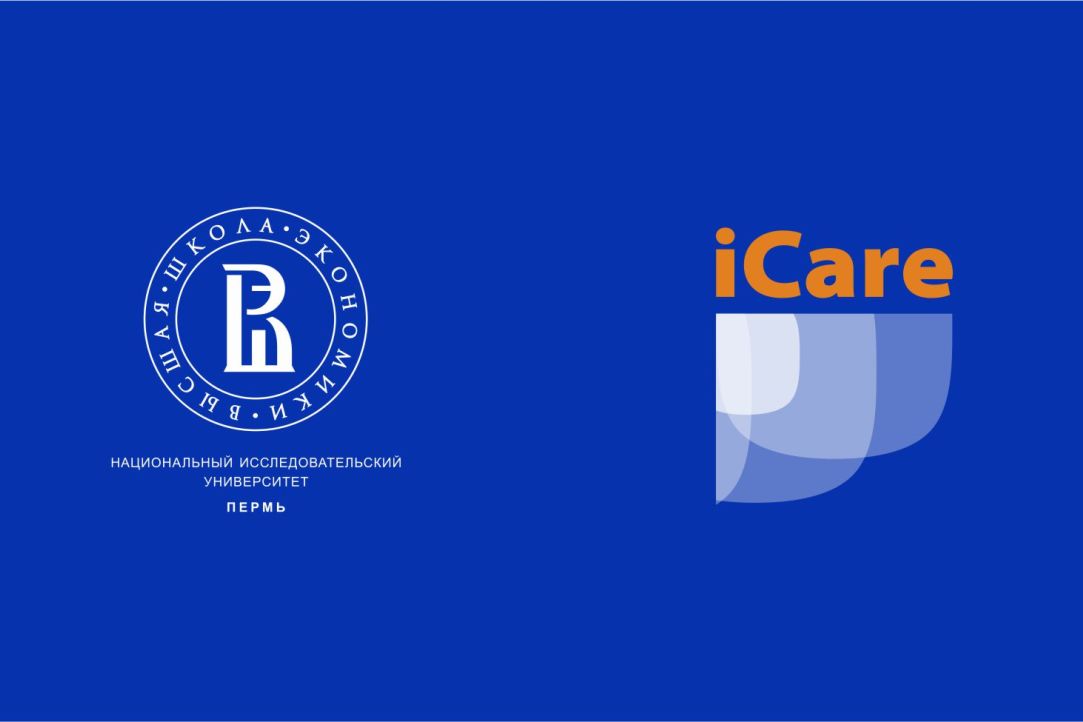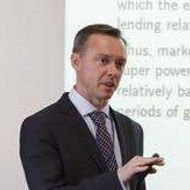2020 iCare Participants Discuss the Economic Effects of the Pandemic, the Accessibility of Higher Education in Russia, and More

On September 21, the VIII International Conference on Applied Research in Economics (iCare) was held online, bringing together more than 100 researchers from 19 countries. Organizers, speakers, teachers, and students shared their impressions of the event and talked about the opportunities that the conference opens up for them.
This year’s conference programme included 24 presentations that were given by Russian and foreign researchers. The papers were organized into 6 sessions:
Poverty, Inequality, Exclusion
Consumer Behaviour
Shocks, Uncertainty and the Economy
Education and Social Interaction
Inflation Expectations
Environment and the Economy
Presentations addressed population expectations, macroeconomic shocks, the reaction of stock markets throughout the COVID-19 pandemic, consumer behavior, education and social interaction, the impact of the environment on the economy, and more.
Between sessions, conference participants could discuss the presentations and future research projects in virtual rooms.
Keynote Lecture: Lessons from the Financial Crisis
The conference’s keynote speaker was Michael Koetter, Professor of Financial Economics at the University of Magdeburg and Head of the Department of Financial Market Research at the Halle Institute for Economic Research (IWH). In his lecture, he described how the 2008 crisis affected the global economy (the banking industry and real companies) and politics, and how these lessons can help us today.
Michael Koetter cited the following key materials in his lecture:
Lending Effects of the ECB’s Asset Purchases
Online Appendix to: Lending Effects of the ECB’s Asset Purchases
May the force be with you: Do political consolidation barriers depress bank profitability?
Keynote Speaker Michael Koetter

In my view, the financial system is key to overcoming the economic downturn due to the ongoing Covid-19 crisis. It is the financial system that should revive entrepreneurial activity and stimulate the growth of wealth and well-being. Failure to efficiently allocate financial resources can have long-term negative consequences. It was a tremendous honor and an enjoyable opportunity for me to share these thoughts at a conference that brought together so many interesting researchers, especially in the areas of growth, resource allocation, and economic dynamics—all from the point of view of different disciplines.
The organizers of the VIII International Conference on Applied Research in Economics (iCare) summed up the results of the speeches and discussions. Despite the online format, the conference retained both its personal atmosphere and high level of discourse.
Programme Committee Chairman, Professor Dmitry Vinogradov

I would rate the quality of the reports presented at iCare as high, but we knew this even at the stage of selecting papers for the conference. Dennis Coates (Chair of the ‘Education and Social Interaction’ session) said that he enjoyed the work presented. Paola Valbonesi chaired the ‘Environment and the Economy’ session. Though this session seemed quite popular during the stage of selecting papers, it was attended by only a small number of participants. But this happens at conferences—there is a time lag between the preparation of a paper and the conference, and during that time one’s research interests can change drastically. This is what we saw yesterday. The keynote lecture touched on the COVID-19 pandemic, and in the macroeconomic shocks session, there was a presentation on the impact of the coronavirus on pharmaceutical stocks. Additionally, in the ‘Inflation Expectations’ session, there were two presentations on how the pandemic affects people's perceptions of economic uncertainty and actions taken by the government to overcome the crisis. This did not make the relationship between the environment and the economy any less important. It is for this reason that we do not hold conferences on a specific them, but rather strive to reflect a wide range of topics.
While participating in iCare online, I wished we could have had more live communication and been able to discuss the presentations during coffee breaks and our traditional informal dinner after the conference. But we tried to adopt a lot of approaches from the ‘Research Neighbours’ conference that was held with great success in the spring. These approaches included having three simultaneous sessions, appointing session chairs, enlisting technical moderators to assist the chairs, and using an online registration system. We had a very difficult task—the speakers were going to be participating from all over the world, from Brazil to Taiwan, and we had to find a time when, relatively speaking, it was no longer night in Chile and it was still evening in Australia. In order to avoid online fatigue, the time of the lectures had to be shortened, and this led to the fact that the breaks were almost entirely spent on discussing the lectures. On the one hand, this is good, because the discussions took place, and for this, many thanks to the session chairs. On the other hand, it underlines how important personal communication is for academic dialogue. Hopefully, next year iCare will be in-person.
Ilya Prakhov
Senior Research Fellow, International Laboratory for Institutional Analysis of Economic Reforms
I have been participating in iCare since 2015. The Perm conference is an excellent platform for discussing research papers, many of which later turn into publications in prestigious journals. For example, last year my colleagues Olga Kotomina and Alexandra Sazhina presented a report on parental involvement, and now, based on the results of our research, we have published an article in a well-known international educational journal.
Unfortunately, due to the COVID-19 pandemic, this year the conference was held online, so it was not possible to personally communicate with colleagues during coffee breaks and discuss comments in more detail. Nevertheless, the online conference was organized extremely well, without technical glitches and with excellent timing. However, I hope that next year I will be able to see my colleagues in person.
Tatiana V. Bukina
Head, School of Economics and Finance
The presentations at the conference were of high quality. For the eighth time, iCare proves itself to be a forum where you can be confident in the significance and the quality of the research being presented. I was especially impressed by the Michael Koetter’s very interesting and useful keynote lecture concerning the banking sector, the real sector of the economy, and politics. For example, I have done studies related to the regional specifics of the economy, and I was interested in learning trends at the macroeconomic level. In the future, I’ll be able to use this information in preparing lectures and applying factual data.
Thanks to the organizers for an excellently organized conference! Everything was carefully thought out, and opportunities for communication and discussion were provided. Although, of course, face-to-face communication at conferences is preferable for me.
Mariya Molodchik
Professor, School of Economics and Finance
Despite these difficult times, this year’s iCare was a success and retained its intimate atmosphere while presenting significant research papers on a wide range of issues in applied economics. Quite a lot of reports were devoted to the problems of instability and forecasts of the economic situation. Some of the authors analyzed the impact of the pandemic on the stock markets. I was especially interested in works on education topics, in particular, the accessibility of higher education in the Russian Federation and social relationships, such as the impact of co-learning effects on student performance. Good luck to all authors in publishing their research!
Dmitry Kashin
Visiting Scholar, School of Economics and Finance
This is my third time attending iCare. This year, I presented a joint study with Elena Shadrina and Dmitry Vinogradov dedicated to the analysis and assessment of factors affecting the conduct of environmentally friendly procurement by Russian government customers. Of the presentations I managed to attend, Michael Koetter’s lecture stood out most. For myself, I noted the structure of the presentation and his ability to talk about complex things in simple words.
Of the advantages of the online format, I would note that you can quickly switch between sessions and presentations, which allows more speakers to present, and it is easier to keep the timing of speeches. But I really miss when the conference participants could come to Perm, and it was possible to interact personally with everyone, discussing research and possible joint projects.
In my opinion, it is imperative for young researchers to present their work at conferences—this way you can get valuable feedback from experts on the topic, get acquainted with leading scholars, and exchange ideas.
Sofia Paklina
Junior Research Fellow, International Laboratory of Intangible-driven Economy (HSE – St. Petersburg)
The most memorable presentation for me was Ernest Biktimirov, Tatyana Sokolyk, and Anteneh Ayanso’s presentation on news sentiment analysis as a determinant of real estate prices. In some of our work, my colleagues and I also perform sentiment analysis of various texts, so it was informative to see an example of the application of this method. I like the online conference format! You don't have to worry about logistic issues and can easily move between different sections.
Tatiana V. Bukina
Associate Professor, School of Economics and Finance
Dmitri Vinogradov
Professor, School of Economics and Finance
Dmitry Kashin
Head, HSE Perm International Office
Mariya Molodchik
Professor, School of Economics and Finance
Sofia Paklina
Junior Research Fellow, International Laboratory of Intangible-driven Economy
